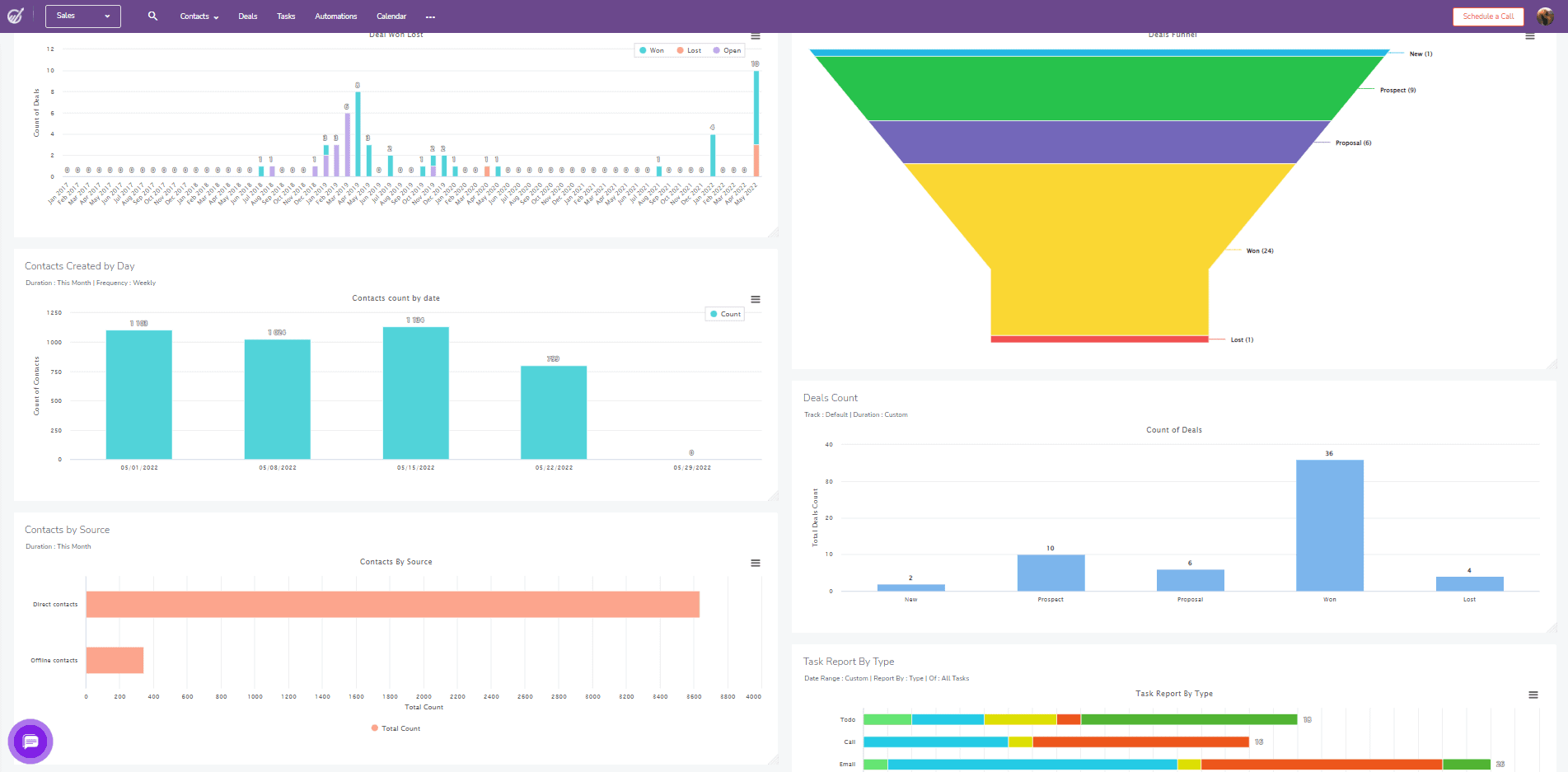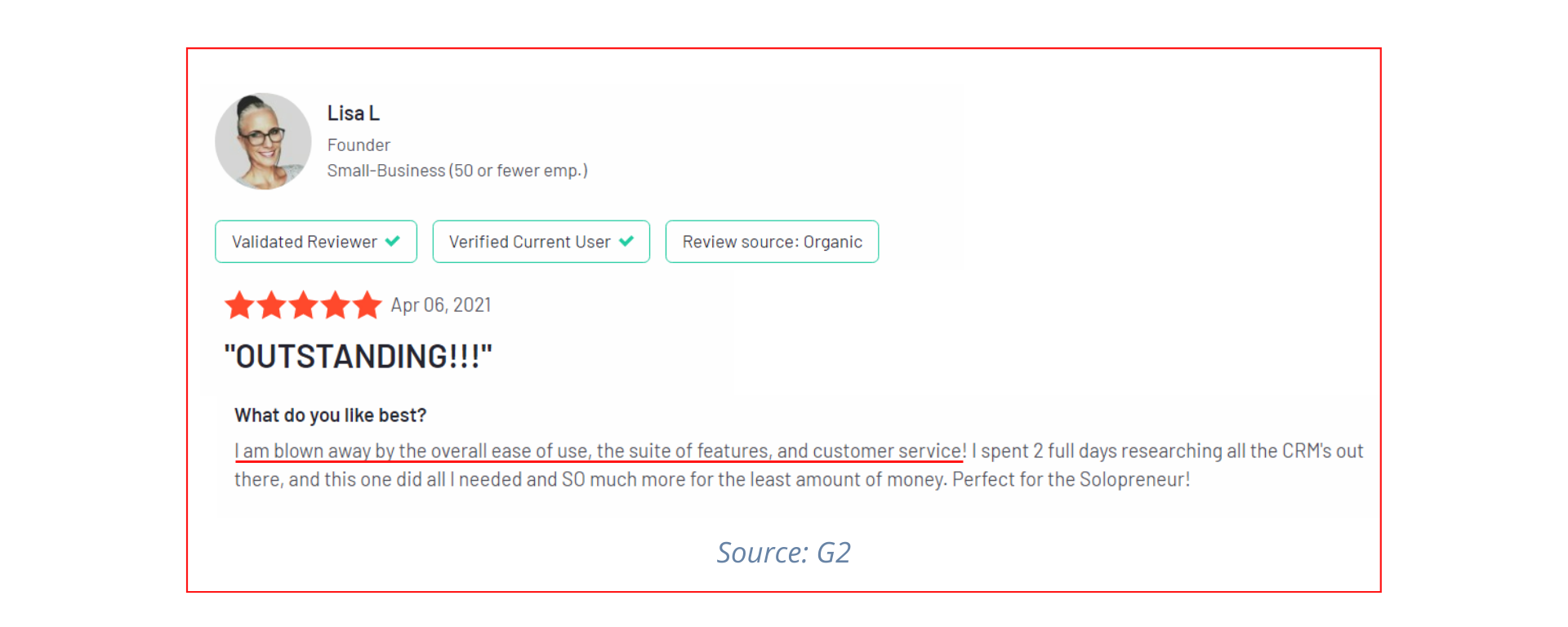Do you know that there are over 30 million small businesses in the United States alone?
That’s a lot of business to target.
What’s even better is that small businesses make decisions faster as they have fewer decision-making units (DMUs) to win over — meaning you can potentially close more deals compared to making enterprise sales.
But that does not mean there are no challenges in selling to SMBs.
You need to have a winning SMB sales strategy, and that’s precisely what we’re going to cover in this blog.
Let’s get started.
Table of Contents
What is an SMB?
SMB refers to small and medium businesses. Typically, SMBs have no more than 1,500 employees and less than $40 million in annual revenue, with SMB owners highly involved in day-to-day business operations. These numbers, however, vary by industry vertical.
SMBs operate differently compared to large corporations and enterprises, and they make decisions faster thanks to having fewer stakeholders.
However, as always, there’s more to it than meets the eye. According to Fundera,
“However, to put these size standards into context, small businesses with fewer than 20 employees make up 89.6% of all U.S. business enterprises. And on top of that, 23 million businesses in the United States actually have no employees at all—meaning there’s only an owner going about business by themselves.”
What are SMB Sales?
SMB sales simply mean selling products or services to small and medium businesses.
SMBs can have anywhere between zero and 1,500 employees and can be anything ranging from small firms, startups, or local businesses.
These businesses have varying needs and pain points compared to larger companies.

Hence, selling to an SMB requires a unique B2B sales process that’s entirely different from the strategy used to make enterprise sales or direct sales to customers.
8 SMART Sales Goals for Business Growth [+ Case Study]
Why is there a need to sell to SMBs?
Selling to large enterprises might be enticing for sales professionals because of the meaty commissions, and because sealing just one deal can increase the topline growth of your company.
However, closing a contract with large enterprises is no easy task.
Selling to SMBs can be easier but it requires a different approach.
Here’s why you should sell to SMBs:
- Possibility of growth: Some earnest SMBs have the potential to grow into multi-million corporations. You don’t want to miss out on that ride!
- Free-flowing communication: SMBs don’t have a very complex hierarchy. Usually, you can have direct correspondence with the SMB owner. Large enterprises often go through multiple rounds of consultation, changes, and more before making a decision.
- Shorter sales cycles: The sales cycle of SMBs being much smaller than large enterprises not only makes dealing with them easier but also quicker.
- High selling potential: More than half of all sales in the US come from small businesses.
Read also: The Top 10 Sales Intelligence Tools and What They Do Best
What are the risks of selling to SMBs?
While it’s pretty lucrative to make an SMB sale, it has shortcomings like any other sales process.
- Most deals may involve only small amounts of money changing hands; you have to be okay with that.
- You’ll require a higher volume of sales closed to reach the revenue target compared to enterprise sales.
- Most SMBs might not be willing to explore a diversified product or service portfolio.
Read also: Sales Pipeline vs Sales Funnel — Yes, They’re Two Different Things
How can your company make SMB sales?
Now, let’s take a look at some proven tips to create an effective SMB sales strategy.
#1. Make the SMB’s journey part of your plan
Understanding where your SMB sales are coming from can help you mold an elaborate SMB sales strategy. Make sure to understand a small business’s process of seeking a solution, and craft a strategy to build the right resources around that process.
In the US, nearly half of the respondents identified social advertising as their main source of revenue. However, the same might not be the case for your firm.
Remember, different buyers have different needs, and your company just needs to target what your potential customer actually wants.
The following aspects should be considered to make successful SMB sales:
- Why should an SMB client prefer you over your competitors?
- Are your SMB sales cycles too long?
- How can your SMB customers learn more about your company?
- What calls-to-action are most convincing to your SMB customers?
Read also: Sales Pipeline Guide for Dummies (With Relatable Memes)
#2. Devise a bolstered strategy based on your customer’s experience
If you’ve successfully answered all the above questions, then you can craft a sales cadence that provides a more structured sales approach for your SMB sales.
Industry leaders often implement this technique. Having a clear SMB sales strategy eliminates guesswork, and performance can be measured with ease. This allows your SMB to keep track of critical follow-ups and ensures deal closure.

#3. Keep track of KPIs
There’s no sure-shot strategy to boost sales. That said, you can use Key Performance Indicators (KPIs) to track your progress.
Some of the key metrics to improve your SMB sales strategy:
- Number of new inquiries made and prospects reached.
- Percentage of new customers and sales made
- Cost to acquire a customer (CAC)
- Customer Lifetime Value (LTV)
- Number of new purchases/customers through original traffic source.
- Total new revenue generated

#4. Manage apprehensions through incentives and free trials
SMBs usually have a limited cash outflow and hence are less likely to invest in risky products or services.
You can offer them a free trial or even a money-back guarantee if they choose to cancel the service within a set period of time.
Showcasing customer testimonials is a powerful way to convince prospects — after all, people trust people more than companies 😅
You should also —
- Build relationships: Small business owners usually look for personal attention from companies; treat each SMB lead with care. It is advisable to connect and nurture a good relationship with the prospects before anchoring the deal.
- Verify leads: Not all leads become paying customers. That’s why marketing teams need to weed out cold leads and hand over qualified leads to their sales teams. When selling to SMBs, keep in mind that some of them may not even have figured out their business model. Chasing all the leads may cost your company time, resources, and money. Score your leads to prioritize some.
- Keep it simple: SMBs are less likely to understand complex tech lingo. It helps to present a simplified and practical sales pitch.

Read also: 10 Elevator Pitch Examples to Convince Anyone in 30 Seconds
Conclusion
We’ve covered a lot in this blog, but there’s one thing that overshadows all other tips.
SMBs have varying budgets, intentions, motivations, and visions, and your solution should help them achieve their goals. In short, your contributions have to add value — and that’s how you need to look at each customer.
Think about it: these SMBs may one day grow to become large enterprises, and building a strong relationship with them can be immensely rewarding.
Now, let’s talk sales.
While there have been showers of software tools to help small business owners grow their business, it can easily get overwhelming.
That’s why you need an all-in-one CRM solution to manage your leads, launch campaigns, track and close deals, and offer incredible customer service.
There are dozens of CRM software and sales tools, all promising the best, but the truth is that many of these platforms are quite expensive — some even cost thousands of dollars a month.
That’s why we built EngageBay — a single-point solution for marketing, sales, and customer support, priced for small businesses and startups. For just a dollar a day, you can automate various aspects of your business.
Want to know more?
Find out how EngageBay helped Lauraine M replace other tools in favor of a simple and affordable CRM platform:
Thousands of small businesses use EngageBay to grow and improve their revenue. Hear from a couple of them:
Sign up now for the free version, or book a 30-minute demo with our experts at a time of your convenience.



